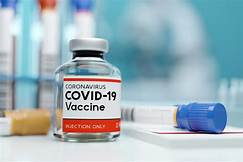Vaccines alone may not be enough to end the pandemic.
Vaccines alone may not be enough to end the pandemic.
Even as vaccines are becoming more readily available in the U.S., protecting against the asymptomatic and pre-symptomatic spread of the virus (SARS-CoV-2) that causes COVID-19 is key to ending the pandemic, say two Georgetown infectious disease experts.
In their Perspective, "SARS-CoV-2 Transmission Without Symptoms" published March 18 in the journal Science, Angela L. Rasmussen, Ph.D., and Saskia V. Popescu, Ph.D., MA, faculty affiliates of the Center for Global Health Science and Security at Georgetown University Medical Center, make the case that symptomless transmission silently drives viral spread and is key to ending the pandemic.
"Determining the true transmission capability of asymptomatic and pre-symptomatic cases is inherently complex, but knowledge gaps should not detract from acknowledging their role in the spread of SARS-CoV-2," the authors write.
"We can't rely on vaccination alone to control the pandemic," says Rasmussen. "Vaccines are great for protecting people against disease, but we don't yet know how well they work to protect against transmission."
Rasmussen says that it would be unlikely that a vaccine that protects well against disease from a biological perspective would not protect against infection. "But just like the vaccines don't offer a hundred percent protection against getting sick, they also aren't a hundred percent likely to protect against transmission."
Also, while vaccines reportedly will become widely available in the U.S. by summer, that is not the case in the rest of the world, where the pandemic continues unabated.
"Asymptomatic and pre-symptomatic transmission poses a unique challenge for public health and infection prevention mitigation efforts," says Popescu. "Ultimately, this is something we will need to continuously keep our eye on as we move into the next phase of the COVID-19 pandemic and a reduction of disease due to vaccinations."
Rasmussen and Popescu conclude, "Until there is widespread implementation of robust surveillance and epidemiological measures that allow us to put out these smokeless fires, the COVID-19 pandemic cannot be fully extinguished."




Comments
Post a Comment